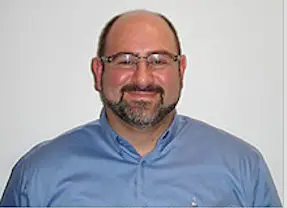A former Sullivan County car dealer has been sentenced to prison for a year and a day for cheating the federal Paycheck Protection Program.
U.S. District Judge Philip M. Halpern also ordered Howard Braunstein to pay $355,638 in restitution to the U.S. Small Business Administration and to forfeit $350,000 to the government, Nov. 30 in federal court, White Plains.

Braunstein was arrested in October 2022 on charges of submitting fraudulent loan applications for M&M Auto Group and M&M Powersports. He pled guilty.
As Braunstein awaited sentencing for his crimes, more than 50 friends, family, former customers and admirers submitted letters to the court attesting to his decency and urging leniency. They described a profound record of supporting charities and individuals, particularly people with disabilities and youths in need of mentoring.
Childhood friend Carl Abramson described Braunstein as “a mensch, in the true definition of the word. … He gives his time, his trust, his faith, his support and ear to his community, team, congregation, friends and friends of friends.”
Assistant prosecutor Courtney L. Heavey acknowledged Braunstein’s legacy.
“The number and diversity of the supportive letters speak to a man who had dedicated his time and resources to many causes and touched many lives,” she wrote in a sentencing letter. But she depicted his crimes as brazen and based on lies and fraudulent documents.
Braunstein learned the auto business from his father, Martin, who started a car dealership in Liberty in 1989 and eventually represented nine brands. In 2008, Howard bought the business from his dad for $4 million.
The businesses struggled during the 2008 financial crisis and throughout the pandemic, according to a sentencing memorandum submitted by Braunstein’s attorney, Kerry A. Lawrence.
In 2019, M&M Auto Group petitioned for Chapter 11 bankruptcy protection, and the enterprise was declared insolvent.
Congress created the Paycheck Protection Program in the early days of the Covid-19 pandemic to help small businesses weather the crisis. Companies that were active as of February 2020 were eligible for bank loans guaranteed by the SBA. Later, the loans could be forgiven if the funds had been used for expenses such as payroll, leases and mortgage payments.
Braunstein submitted PPP loan applications for M&M Auto and M&M Powersports and he received nearly $732,000.
A year later, he applied for loan forgiveness, claiming the funds had been spent on payroll and rent.
The applications were a sham, according to court records. M&M Auto, for instance, had been bankrupt since 2019: it did not exist as of the February 2020 threshold, it had no employees and it paid no rent. Braunstein used the same payroll records for both applications, in effect double counting his employees.
In seeking loan forgiveness, he claimed that both companies paid $179,664 in rent, according to court records, when in fact no rent had been paid.
He did owe a mortgage to Irene Yabrow for the property on which his businesses operated, Heavey’s sentencing letter states, but he “failed to pay a dime towards his mortgage.”
Instead, Heavey says, Braunstein used the money to prop up his business long enough to sell it and then retire to Florida.
“He left Ms. Yabrow, an 87-year-old Holocaust survivor, living on fixed income, without mortgage payments that she was counting on for her monthly income.”
Defense attorney Lawrence placed much of the blame on Donald Raimondi, the business’s controller who handled much of the paperwork and who allegedly embezzled $500,000 to $600,000 from Braunstein’s companies.
Lawrence asked the court to impose no prison time. Braunstein had failed to oversee and scrutinize the PPP process, he argued, but he was trying to save his business “whose financial difficulties were compounded by an untrustworthy employee and the Covid-19 pandemic.”
Heavey noted that Braunstein had fired Raimondi more than a year before the fraudulent loan forgiveness papers were submitted, and that Raimondi had probably stolen about $160,000.
She recommended 14 to 21 months in prison, in accordance with federal sentencing guidelines.
“This was not a failure to oversee the actions of employees engaged in fraud,” she states. “The defendant was not asleep at the wheel, he was the driving force behind this fraud.”
Judge Halpern recommended that the Bureau of Prisons put Braunstein in the FCI Coleman satellite minimum security camp in Sumterville, Florida.
He ordered Braunstein to surrender on Feb. 27.


















